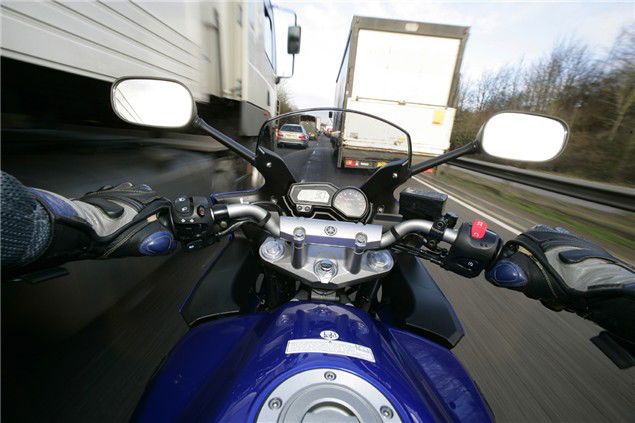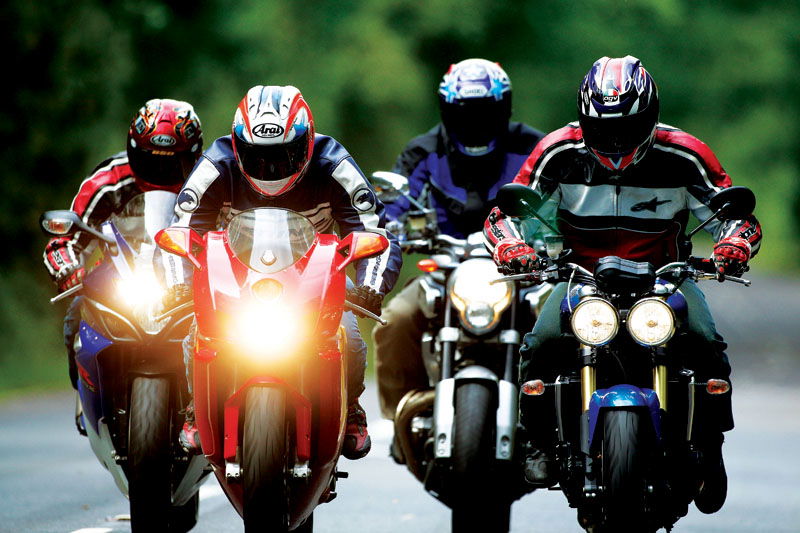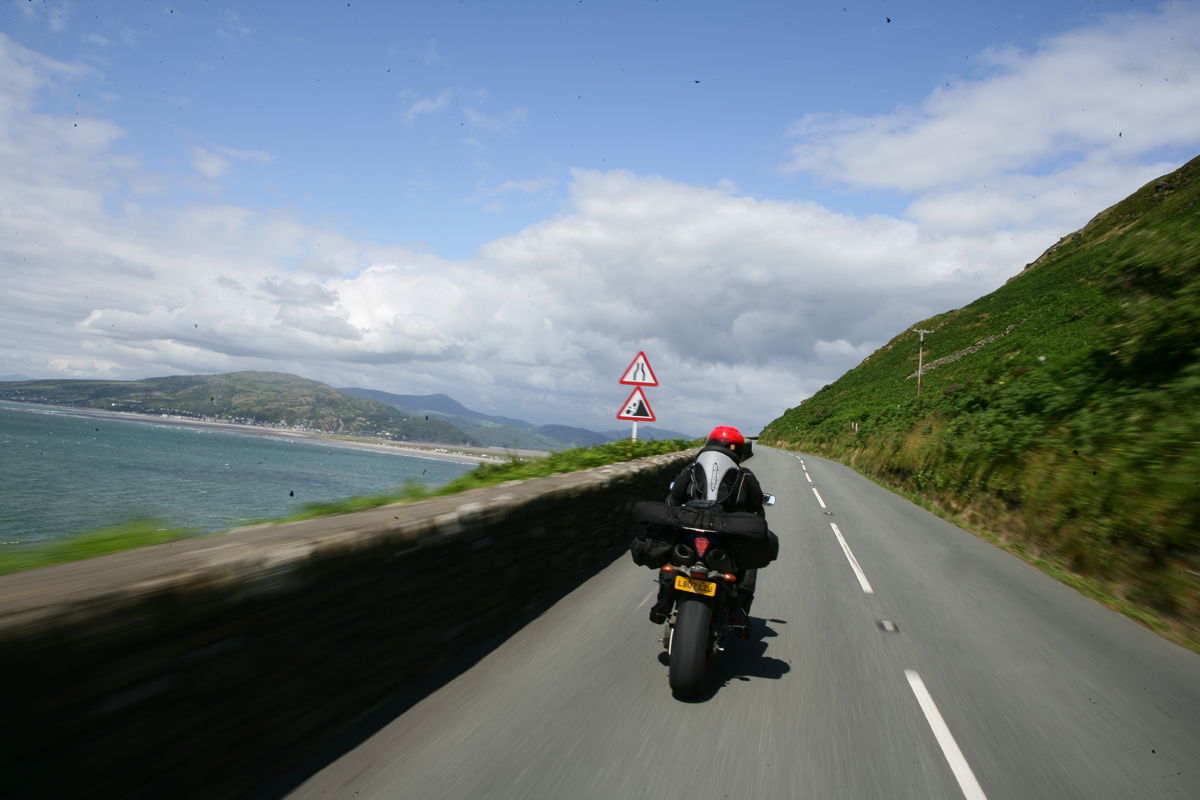Gain time by motorcycle commuting
Where are Britain's motorcycle commuters? Have we gone soft or are we too sensitive to the ravages of winter on man and machine? Year-round commuting has its upsides. Be inspired to ride every day of the week, with our help


Here's the deal. We're offering you a whole extra year on your life, to do with whatever you please.
In 2011 alone you can cash in on over seven extra days, absolutely free. Add them to your annual leave quota.
So how do you claim the days? It's simple, merely park that dumb old motorised tin box you insist on dragging from here to there, half the time looking for somewhere to leave it. Yep, park it up and grab that motorcycle of yours, you know, that highly polished trinket you bring out on high days and holidays. Jump on it and ride it to work, and back. That's it.
The Motorcycle Industry Association put together some research back in 2003 and found that for every hour spent driving a car in an urban environment you could save 33 of those minutes by riding a bike. Even mixing in some out of town riding you could still claw back 20 minutes out of every hour. Our own research made this month backs that up. Meanwhile, Stateside, the US Department of Transport quotes average motorcycle fuel consumption to be 50.1mpg compared to 22.3mpg for cars. So if their 129 million motorised commuters swapped from car to bike they'd drop their daily fuel usage from 60 million gallons a day to just over 26 million gallons (yes, per day!) Yet in America only 3% of their motorcycles are regularly used for commuting, so 97% of US motorcyclists are using other means of daily transport. Madness! And while we don't have figures for the UK, given our recent correspondence in the letters pages, given our own research into our subscribers' activities, and given our own experience out on the roads each day - well, of Britain's own 1.5 million active bikers it's fair to say only a minority are commuting on two wheels.
And here's the thing, by commuting by bike not only do you win back time (and you know you only see these minutes and hours once in a lifetime) but you get to play biking, your favourite pastime, every day of the year. So you become a better, more practiced rider.
So why are we not moto-commuting?
That's hard to say. For some it's a logistical no-no and clearly there are barriers, both real and perceived.
For a start there's all that time spent getting in and out of the thermals, windproof layers, armoured textiles and the waterproof one-piece over-the-top. For a journey of anything less than 20 minutes (by car) it often doesn't work. But the moment the journey is longer the bike rider is saving time. And that time changing always feels long, yet our survey of readers showed the average winter gear dressing time is still only six minutes.
And of course, as implied, winter biking calls for lots of gear. Lots. That's the perception, and while
certainly you need new kit over and above your summer kit, it's not that bad. Our survey placed a surprising number of happy readers in Hein Gericke two-piece textiles which they combined with waterproof boots, winter gloves and a neck warmer to create a very effective daily outfit. On bad days they'd
throw thermals underneath.
Of course the gear needs to be stored, both at home and at work. For some that's not a problem but if your office looks anything like ours then it certainly can try workmates' patience. But there are ways around. Speak to the building caretaker, chances are there's a store cupboard somewhere you can change in and leave your soggy kit.
And finally there's the matter of presentation. What you look like when you get to work. That's bogus actually. If you can't manage to take a hanger to work for your suit jacket, can't organise to place your brogues under your desk then you're no use to mankind. And most of us these days, as our readers again confirm, dress smart-casual for work.
So really, why commute year-round?
It keeps coming down to the time you save. And sanity. Can you really look yourself in the mirror of a morning and say 'taking the car makes sense'. Not really, except in a few circumstances, such as car sharing, taking sprogs to school and instances of zero traffic.
And while the government fails to get a grip on the train network, which was effectively maimed way back in the 60s by the ill-advising Beecham Report, then trains, a most excellent form of mass transportation, will remain nothing more than a rich man's form of self-flagellation.

